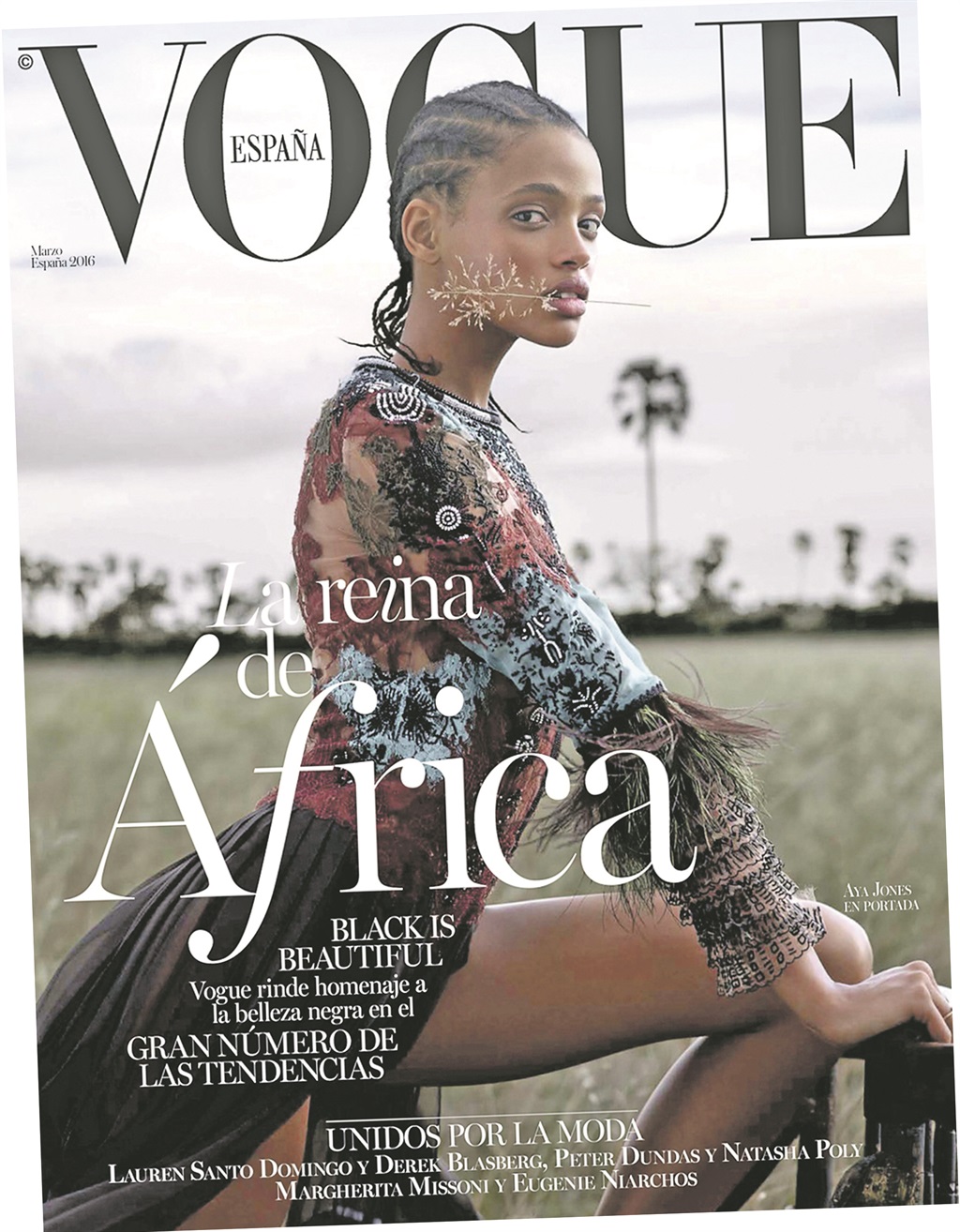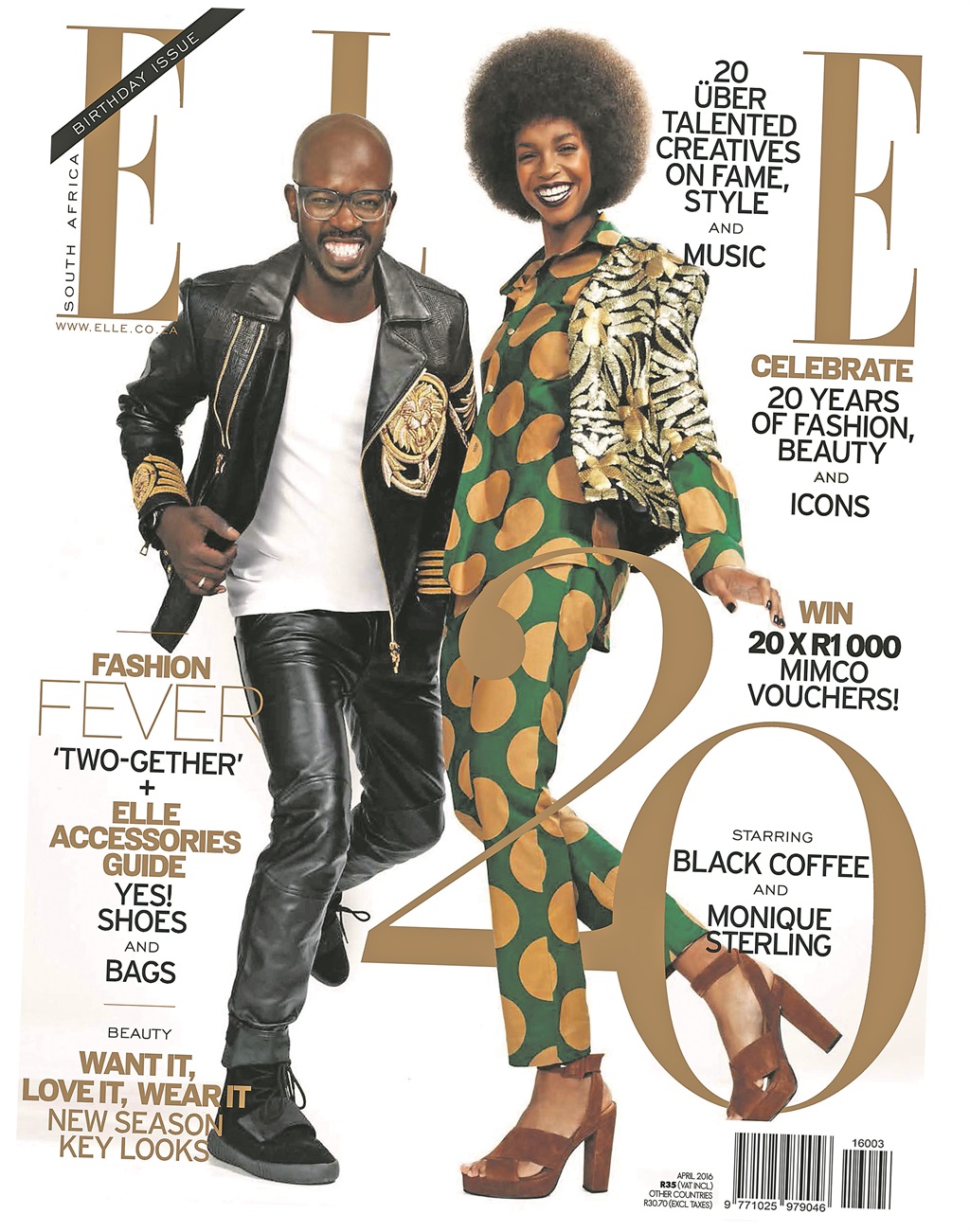
On a recent cover of Vogue Spain sits a young black woman wearing cornrows, a piece of grass between her lips and an expression in her eyes so deep one could fall into it.
Behind the phrase “Black is beautiful”, Aya Jones is perched in a dress of feathers with a backdrop of unending fields and trees. It’s wild, it’s captivating; this is “Africa” (or “The Queen of Africa”), as told by Vogue España.
Still high on a cloud from Beyonce’s Super Bowl performance in February, where pitch-black Afros beneath inky berets evoked Black Panther imagery, the issue rolled in to March with furious applause from culture critics and fashion bloggers alike.
“Vogue has been trying, but still largely failing, at being progressive, but this cover is worthy of recognition, partly because Vogue is so lily white most of the time,” wrote Jezebel’s Clover Hope with measured suspicion. Mic.com’s Mathew Rodriguez flat out praised Vogue Spain’s cover and referred to how the fashion magazine “decided to showcase #BlackGirlMagic because they know that #RepresentationMatters”.
But does Vogue España really understand that representation matters or believe that black is beautiful? Inspecting the credits of the cover-shoot production and the magazine’s top positions says it does not.
Edited by a white woman, Yolanda Sacristán, the March cover of Vogue Spain was photographed by a white man, Nico Bustos, styled by a white woman, Belen Antolin, with hair by Karim Belghiran (who was helped by local black women from Botswana, of course).
So where does that black that Vogue Spain says is beautiful belong? Does it have a place on the decision-making body of its editorial team? Does that black beauty have a hand in how it tells its own black stories? Does that beautiful blackness even get to frame itself? Looking at the Vogue Spain March cover, the answer is no.
Representation is crucial in the media, but the message Vogue Spain puts across with this cover is that it’s only important superficially, which is not new among high-end fashion titles.
“How many African-American or any diverse [cultural] individuals do you have at the heads of any of the high-niche magazines or high-niche design brands?” asked former Vogue editor at large André Leon Talley in a 2013 interview. His answer: “You can count them on one finger.”
Like Elle South Africa’s April cover, which features a model sporting a ’fro (next to producer Black Coffee) and Beyonce’s Formation performance at the Super Bowl, Vogue’s March issue evokes imagery and phrases from the 1960s and 1970s, when natural hair and pro-black slogans were part of something greater: self-actualisation by black people as a way of breaking down the effects of colonialism, as a way of reclaiming agency over our identity, our stories and, ultimately, our futures.
The fashion world is not the only industry accused of blackface, appropriation or exhibiting blackness while lacking diversity behind the scenes; it’s prevalent in the advertising industry, the art world, the music scene and more.
So when a lily-white team comes together to present blackness and praise its greatness in the absence of blackness itself, alarm bells must ring – and question the value of Steve Biko’s words when he said black was beautiful, a message that reverberated across the diaspora to be sung by the Panthers and pan-Africanist groups at the time.
Jason is a writer
TALK TO US
Is it a sign of progress when black models appear on the covers of traditionally white magazines?
SMS us on 35697 using the keyword BLACK and tell us what you think. Please include your name and province. SMSes cost R1.50




 Publications
Publications
 Partners
Partners









